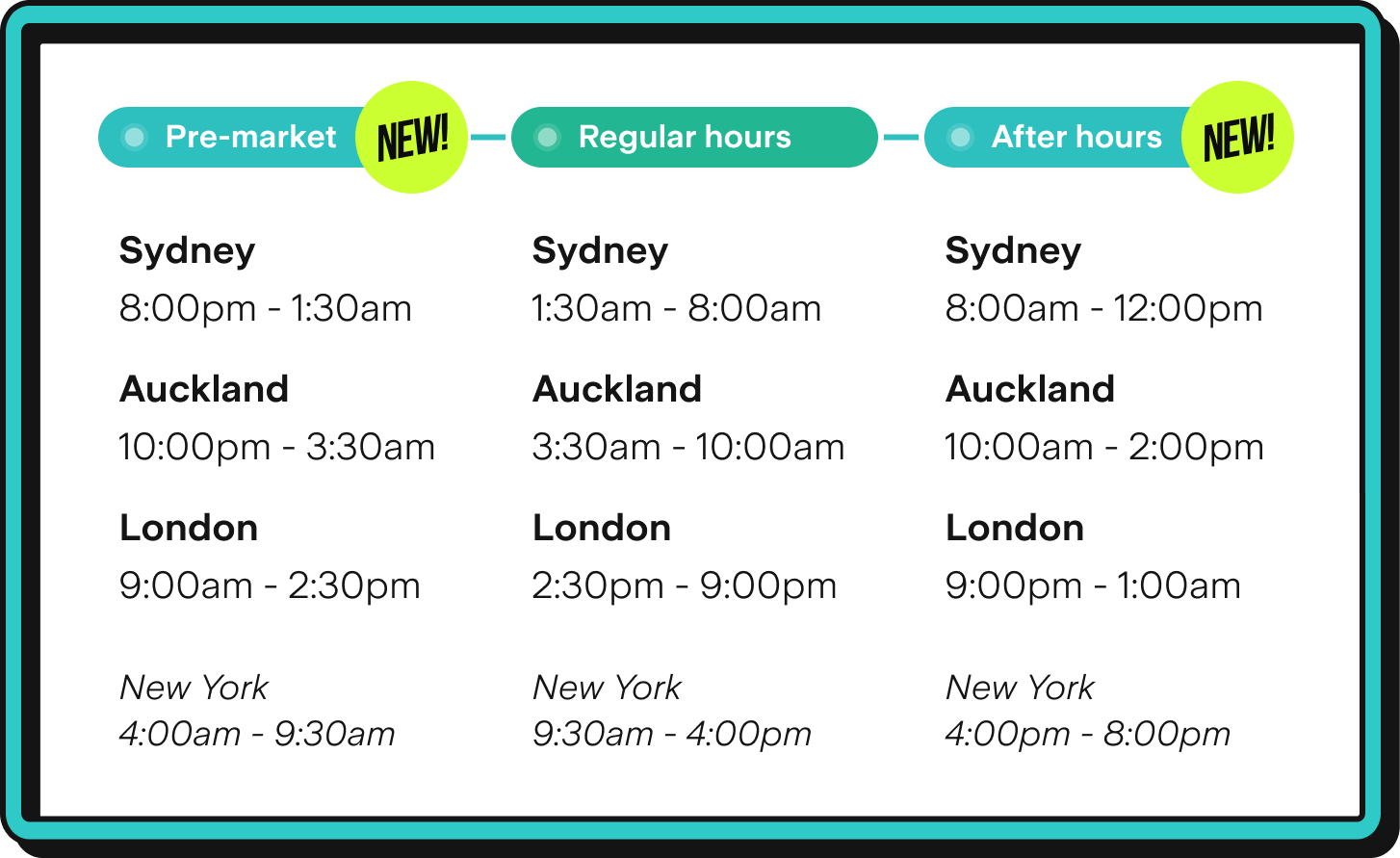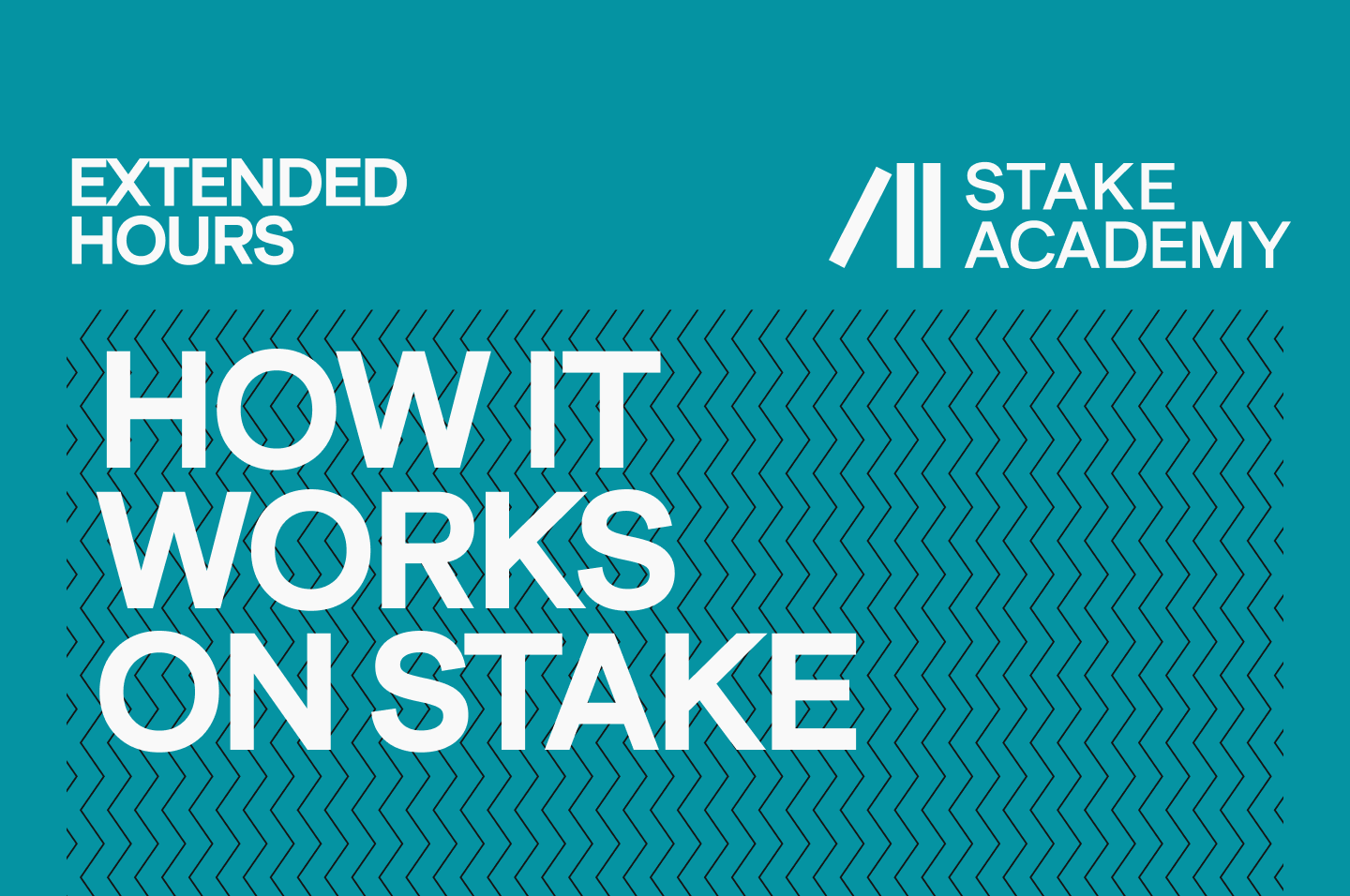
What is Extended Hours Trading?
Events that affect stocks can happen at any time. Certain trading platforms allow retail investors to buy and sell shares outside of the regular trading times of the U.S. stock market.
Stock exchanges usually have official opening hours during weekdays. The major U.S. markets for example, the NYSE and Nasdaq, are open for trading from 9:30am to 4:00pm. Local time is Eastern Time, which means UTC-5 for Eastern Standard Time (EST) or UTC-4 during Eastern Daylight Time (EDT).
In reality, the opportunities for investors go beyond those times. Extended hours trading adds two periods of time for investing: one before the market opens and another after it closes. This means investors can buy and sell shares outside of the regular daytime session, reacting more swiftly to the latest news. It can also be particularly useful for those trading from overseas.
Extended hours are one reason why there can be reports of stock prices changing despite the national exchanges technically being closed. These shifts often occur around earnings calls, which take place outside of the main daytime session. In today’s globalised world, a company’s share price can also be affected by events in multiple countries and time zones.
Inner workings
From an investor perspective, placing buy or sell trades during extended hours generally functions the same way. But for an investment platform, things operate a little differently behind the scenes.
During the main trading hours, market liquidity and depth are facilitated by market makers. These are usually large financial institutions that participate in buying and selling shares to enable investors to trade efficiently. In extended hours, trades are generally executed through Electronic Communications Networks (ECNs). ECNs match buy and sell orders and complete these transactions on an Alternative Trading System (ATS), rather than a national exchange like the Nasdaq.
Traditionally, only institutional investors had access to extended hours trading, but ECNs emerged in the late 1990s and enabled the practices to reach retail investors. Now extended hours trading is offered by a number of retail platforms, with volumes growing rapidly in recent years. The NYSE saw increased activity from retail investors from 2019, with people being particularly interested in individual shares and smaller firms.
What exactly are the extended hours?
The additional sessions cover 5.5 hours before and 4 hours after the stock market’s regular daily opening period of 6.5 hours, for a total of 16 hours a day. See below:

The above is a guide only. Time differences change according to daylight savings. Note there’s still no trading activity from 8pm to 4am EST.
Extended hours trading is now available on Stake. See how it works on our platform and the risks and benefits of trading during extended hours.
Extended Hours carries additional risk and may not be suitable for all investors. Read our Risk Disclaimers and Terms and Conditions.

Sam is a product marketing specialist at Stake with 6 years of finance experience in Australia. With a Bachelor in Business from the University of Technology, Sydney, he specialises in product marketing and communications strategy. Previously, he has worked in the home lending and retail banking sectors with experience in customer success, marketing and product at Mortgage Choice and Ubank (formerly 86 400). At Stake, Sam helps manage the launch of new products and features whilst also focusing on marketing campaigns that help improve the Stake experience.

